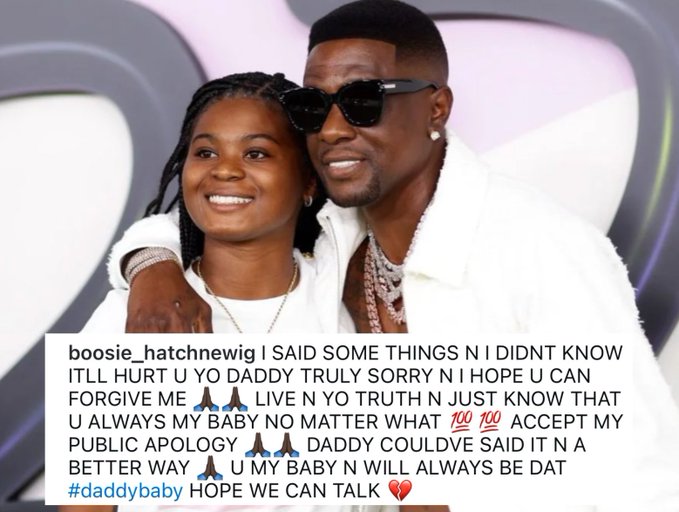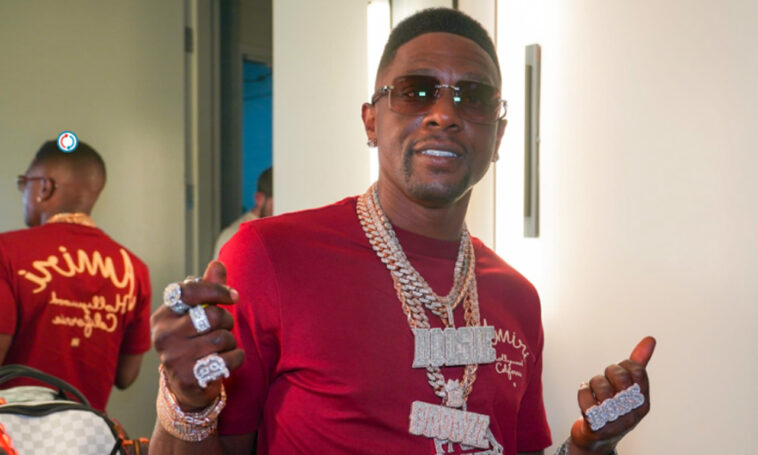Rapper seeks to mend relationship following backlash over remarks on sexuality
Rapper Boosie Badazz, known for his outspoken personality, has publicly apologized to his daughter, Iviona Hatch, after facing backlash for his comments about her sexuality. The situation escalated following a live taping of the show “Caresha Please!” hosted by Yung Miami, where Boosie made remarks that many deemed homophobic. This incident has brought to light important conversations about acceptance and family relationships.
During the live episode, Boosie expressed his discomfort with his daughter’s openly lesbian relationship. He stated that he does not allow Iviona’s partner into their home because he fears it may “contaminate” his younger children.
“She still can’t bring her situation to our house,” he explained. “I want them to bring me grandchildren.”
These comments sparked immediate outrage on social media, with many criticizing him for lacking acceptance and support for his daughter.
In the aftermath of the show, Iviona responded online. She emphasized her love for her siblings, stating, “If you know me, I love and respect my siblings with everything in me. And they respect me and love me with everything in them.” She added that she is often the one her siblings turn to for support, highlighting the strong bond within their family.
Realizing the impact of his words, Boosie took to Instagram to express his regret. In a series of heartfelt posts, he addressed Iviona directly. “Never meant to hurt you,” he wrote alongside nostalgic photos of their time together. He also referred to her affectionately as “Daddy bby,” showing his desire to reconcile.

However, Boosie also defended his position against the backlash he received. He stated, “Y’all won’t make me look like a bad father. I love my kids. I’m a good father.” This defensive stance illustrates the complexity of parenting, especially when navigating differing views on sexuality and acceptance.
His Instagram posts included phrases like “God got us” and “What is understood doesn’t need to be said,” indicating his hope for healing within the family. He seems to be striving for understanding while also maintaining his perspective on parenting.
The response to Boosie’s comments reveals the deep divides in discussions surrounding sexuality and acceptance, particularly within families. Many people expect parental support for their children, regardless of sexual orientation. Boosie’s initial remarks contradicted these expectations, leading to calls for greater empathy and understanding.
In many ways, this situation reflects broader societal issues. Families often face challenges when members have different beliefs or lifestyles. This case is particularly poignant as it showcases the struggle between traditional views and the evolving acceptance of LGBTQ+ identities.
The relationship between parents and children can be complicated, especially in cases like this. While Boosie expressed his love for Iviona, his comments suggested a lack of acceptance that can hurt relationships. Iviona’s response emphasizes the importance of respect and understanding in family dynamics, regardless of individual differences.
As the conversation continues, many are hopeful that Boosie’s apology will lead to meaningful discussions between him and Iviona. Healing relationships takes time and effort, especially after public disputes. The rapper’s attempts to reach out show that he is willing to engage, but it remains to be seen how their relationship will evolve moving forward.
This incident serves as a reminder of the power of words and the importance of communication in families. It highlights how quickly misunderstandings can escalate, particularly when discussing sensitive topics like sexuality. Open dialogue and respect are crucial for families navigating these waters.
Boosie’s apology marks a significant step in acknowledging his daughter’s feelings and the impact of his words. It reflects a moment of introspection and the desire to foster a healthier relationship moving forward. For Iviona, this may be an opportunity to express her identity more openly while reinforcing her connection with her father.
As this situation unfolds, it will be interesting to see how both Boosie and Iviona navigate their relationship. The challenges they face are not unique; many families deal with similar issues regarding acceptance and love. Their journey could inspire others to approach conversations about sexuality with empathy and understanding.
In the end, what matters most is the bond between parent and child. The road to reconciliation may be long, but it is one worth taking.



